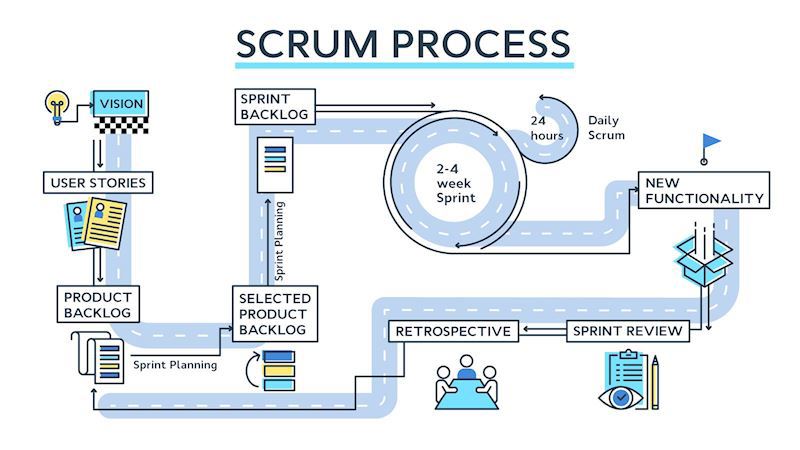2+ years on and our scrum adoption has helped us deliver more.
You might remember that back in 2018 we decided to adopt a scrum approach to all thing’s development, and since its inception the team have been busy refining the process, so it runs like a well oiled machine.
Working at various agencies and getting to experience the vast approach to project management of creative and development projects has always been fascinating to me. I’ve always found the constant juggling of projects and requests a good challenge, as problem solving is my forte, and coming up with better processes to make this all too familiar agency problem work better is a mammoth task. That’s why when I started at Webnetism I was surprised at how well scrum worked.
There’s noting worse than someone being on holiday and someone else having to pick up work, especially when the project that the person who is away was working on is complex. Webnetism adopted Scrum back in 2018 and since its inception the team have been more productive than ever before. Don’t get me wrong, there’s been hiccups along the way and refinements have been made but our approach to new and existing client projects is fabulous!

Approach to new projects
All our new projects get discussed in-depth and team wide, after all seven heads are better than one. Having these open and honest discussions internally help to come up with better solutions for clients which are struggling with their current set-ups. From the back of these discussions proposals are created which give clients a clear understanding of what is going to be delivered, how long it’s going to take and how much it’s going to cost.
We’re open and honest and we like nothing more than presenting a solution to clients which will make running their businesses easier.
Approach to existing projects
Working in two-week sprints has been interesting, as I’d never worked at such short intervals, however I really like it and I think our clients do too as it gives them more control over the work carried out and knowing that their project/request will be complete in a much shorter timeline is a bonus.
Our “scrum master” leads the daily gathering around the campfire (or screens) to discuss the work they started or completed the day before and any potential issues that they have faced. Discussing issues always brings someone else’s way of thinking into the picture and usually helps see things differently – I’m sure we’ve all been there, staring at the screen for way too long trying to think of a way to solve something yet nothing pops into your brain.
What about last minute or urgent requests?
Alongside our “scrum” board we still have a “support” board. Smaller requests from clients tend to make it to this board and these requests are discussed with the person working on support, for the duration of the sprint, and unless the team feel that the request needs further exploration and scoping it’ll normally be sorted out within seven to ten days unless it’s business critical – the client’s business not ours!
Well always try and accommodate every request and make sure it is turned around as quickly as possible. No one wants to be left with a broken website or app – do they?
Want to know more about how we work or our approach to development? Get in touch.